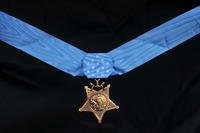Dear Sgt. Shaft:
I’m trying to get the straight scoop on military Reserve time and whether or not it can be applied toward federal civil service retirement — (CSRS or FERS) Civil Service Retirement Service or Federal Employees Retirement System.
I know that you can “buy back” the active duty time that you were on orders for while serving in the Reserve components. My question here goes beyond that. Does Reserve duty time count at all toward years of federal civil service retirement?
I have heard both “yes” and “no.” Just to be clear here, my question refers to Reserve duty time such as weekend drills and the rest of the time spent while in Reserve status. Any help you can provide would be appreciated.
Thank you for your service past and present.
Marty F.
Via the Internet
Dear Marty:
I understand from the Military Officers of America (MOAA) that the rules for using military service as credit in a civilian retirement are the same for CSRS and FERS.
The confusion among Reservists about creditable military service for civilian retirement stems from two separate issues:
1) Whether the Reservist is not receiving military retired pay at the time of civilian retirement or;
2) Whether the Reservist is receiving military retired pay at the time of civilian retirement.
If a Reserve member is not receiving retired pay at the time of separation from civilian employment, Reserve time cannot count toward civil service retirement credit.
Reference CSRS/FERS Policy Handbook, Chapter 22, Creditable Military Service, Page 8. The Reservist can only use the time served on active duty and that includes the two-week annual training periods — but not the time served on weekend duty or when not called up for active service.
If a Reservist is receiving retired pay at the time of civilian retirement, then it appears Reserve time served can be used toward civilian retirement. See CSRS/FERS Policy Handbook, Chapter 22, Creditable Military Service, Page 15 and Page 13.
The Office of Personnel Management (OPM) guidance I read does not explain many of the details I still have questions about. It would be best to find an OPM expert who can provide the exact answer.
Shaft notes:
• Kudos to to the American Legion for urging three members of Congress to support legislation to continue funding college-tuition-assistance programs provided by U.S. military service branches. Four of the five service branches announced this month that the programs would be suspended, as casualties of federal spending cuts under sequestration.
In letters presented Tuesday night to Rep. Ted Poe, Texas Republican, and Sens. Kay Hagan, North Carolina Democrat, and James Inhofe, Oklahoma Republican, American Legion National Commander James E. Koutz applauded new legislation they have introduced that would extend funding for the programs through the end of fiscal year 2013.
“Military tuition assistance is a critical investment in America’s service members,” Mr. Koutz said. “It allows them to continue their education and develop their skills while still serving on active duty. Maintaining a professionally educated military is a critical component to ensuring that the United States is well defended and that our nation receives well-educated transitioning veterans who strengthen our economy after discharge.”
The leader of the nation’s largest wartime veterans service organization wrote in the letters that, “The American Legion supports passage of (your) important legislation, and applauds your leadership in addressing this critical issue …”
Mr. Poe’s proposed legislation offers continued funding of military tuition assistance by restricting foreign aid payments to Pakistan.
In early March, the U.S. Marine Corps announced plans to suspend enrollments in its program that provides financial aid for those pursuing their degrees while in the service. The U.S. Air Force, Army and Coast Guard followed suit within days. The U.S. Navy, for the time being, is holding fast with Deputy Chief of Naval Operations Vice Adm. Scott Van Buskirk announcing that tuition assistance for sailors will be funded until at least September of this year.
• Rep. Tulsi Gabbard, a Hawaii Democrat and a member of the House Committee on Homeland Security, recently introduced the “Helping Heroes Fly Act.” This bipartisan measure will improve airport security screening processes for wounded and severely disabled service members and veterans. Rep. Cedric Richmond, Louisiana Democrat, ranking member on the Committee on Homeland Security’s Transportation Security Subcommittee, and Rep. Dave Joyce, an Ohio Republican and a member of the House Appropriations Committee, are original cosponsors.
“For our wounded warriors and their families, airline travel can be an especially difficult experience,” Ms. Gabbard said. “Due to the nature of their injuries and disabilities, removing a belt, shoe or jacket can be more than just an inconvenience. These selfless heroes should not have to face lengthy, invasive and even humiliating screening procedures at our airports. The Helping Heroes Fly Act is one step toward ensuring they do not face unnecessary hardships after having served our country with courage and dignity.
“I have heard from advocates of members of the Armed Forces and veterans, and found that the TSA’s current Wounded Warrior Screening Program should be improved in order to address inconsistencies. Some wounded warriors have also reported a lack of sensitivity and respect for privacy during the screening experience. The Helping Heroes Fly Act aims to address these inconsistencies and ensure a more positive experience for our wounded service members and veterans.”
Mr. Richmond said: “This country has a duty to honor all veterans, especially the wounded and disabled. This means that the proper procedures are in place to ensure that every wounded warrior is treated with respect and dignity while traveling. The Helping Heroes Fly Act upholds this commitment to our wounded servicemen and women. Considering all that they have already sacrificed for our freedoms, the least we can do is to alleviate the burden of excessive and unnecessary screening procedures.”
According to TSA, The number of wounded warriors using the Military Severely Injured Joint Support Operations Center (MSIJSOC) program is steadily increasing, with approximately 4,252 in 2011, 5,914 in 2012 and 3,315 as of February 2013.
• Send letters to Sgt. Shaft, c/o John Fales, P.O. Box 65900, Washington, D.C. 20035-5900; fax 301/622-3330, call 202/257-5446 or email sgtshaft@bavf.org.










